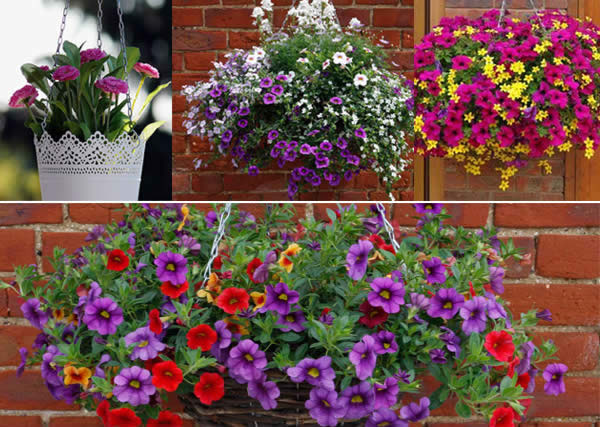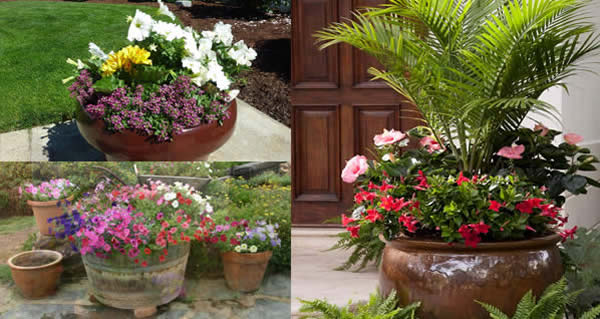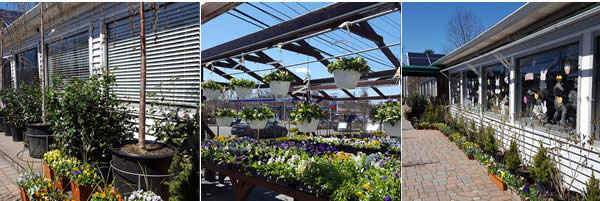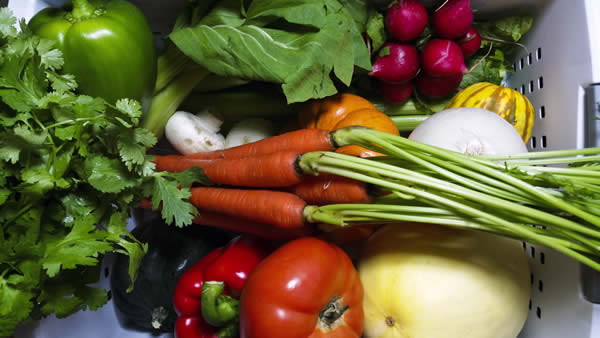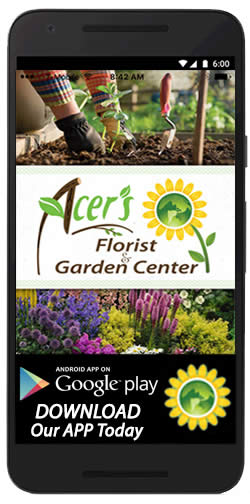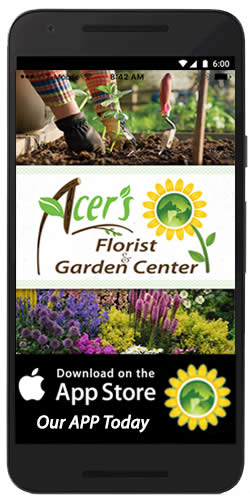
Homegrown peppers are fun to grow, healthful for you, and packed with flavor. They taste great whether eaten fresh, roasted or sautéed.
Many people start with one variety and quickly discover it's even more fun to experiment and grow multiple varieties that produce a medley of flavors.
The biggest mistake gardeners make is planting their pepper plants too early. You can start them from seed indoors early in spring, but it's best not to transplant starter plants until the soil has warmed and night temperatures stay above 55-60 degrees.
Peppers do best in well-amended soil, so make sure to amend your vegetable bed before planting.
They prefer a long, moderate growing season. If it is too cool, peppers might not quite ripen fully, and the fruit won't set well when daytime temperatures stay above 90 degrees (shading them some can help during a string of hot days).
It's very important to keep the soil consistently moist; otherwise the peppers can crack or get sun scald.
Make sure to apply a rich organic plant food high in calcium at the time of planting and every two months during the growing season. This helps prevent blossom-end rot.
Once your peppers change to their mature color, it's time for harvesting. Then sit back and enjoy the fruits of your labor.
Click to print this article.

June is the month where spring gives way to summer. In the garden, it's a month of trimming, hedging, mulching and planting.
A little hard work now will help you reap rewards all summer and into the fall.
In the vegetable garden, you should be filling in your open spots with summer vegetables. Peppers, tomatoes, corn, cucumbers, and squash should all be planted now.
Remember that you'll need a lot of closely planted corn to ensure fertilization. Squash plants will grow large, so give them at least 2' of separation from their neighbors.
Tomatoes should be planted deep into the ground, burying up to the first branch on the stem. Add cages early to avoid damaging the plant doing it later.
To maintain a constant harvest of peas and beans, sow at least a dozen seeds every week.
Sow more cilantro every two weeks, and spread basil seeds around to ensure fresh new plants through the summer. Direct-sow some more spinach, chard, and kale as well.
Plants that you have on a trellis, whether cucumbers, melons, tomatoes, peas, or pole beans can need a little help getting established.
Check on your plants and gently help them find and work their way up the trellis or cage.
Keep an eye on the weather. Your garden will want about an inch of water a week, whether from mother nature or father sprinkler. If it has been dry, your garden should be watered, and if it has been raining a lot, it shouldn't.
The best way to tell is to use a probe, which could just be a stick or your finger, and test how moist the soil is an inch or two below the soil in different spots in your garden.
If it comes out wet, give it a day or two. The best way to water is slowly, at ground level.
If you're using sprinklers, set them on low and let them run for 10-15 minutes to allow the water to soak in. Pots should be checked every day or two.
You should be weeding regularly. Running a scuffle-hoe between rows weekly is a good idea, but by hand works fine as well. Weeds are easier to pull when they're little.
The important part is to prevent them from flowering, or you will be dealing with their offspring for a long time. Add mulch to your beds to keep weed germination to a minimum and help with moisture retention.
In the flower garden, this is a good time to trim, shape, and trellis. For bulbs, pinch off old blooms, but leave the foliage in tact to die back naturally in a few weeks.
Spring blooming perennials should be trimmed back once they are done blooming. Vines should be assessed, trimming back where you don't want growth, and supported by tying them loosely to your trellis.
This is a good time to trim and sculpt your hedges back, and to do edging around your beds to define their shape and keep the lawn from invading.
Take a look at your trees and trim back dead or diseased branches. Lilacs can be trimmed back now as well. Mulch around your shrubs and trees, but make sure to keep the mulch from mounding around the trunk of the plants.
Fall-blooming bulbs should be in the ground already, but keep planting gladiolus every week or so for constant blooms in the fall. If you have any empty spaces, this is a good time to plant perennial shrubs and to add annuals.
We have lots of options right now to add colorful accents. They'll attract pollinators too, which will help your vegetables produce to their potential. Any empty pots you have can be filled with annuals. Mix and match colors and varieties to your liking.
For your lawn, this is the last really good time to overseed bare patches and have it establish before the heat of summer kicks in.
Remember to keep it moist and cover the seed with some hay or grass clippings to keep the birds at bay. If you go a while between rains, some additional water will help keep it green.
Fertilize your lawn, raise the mower blades, and mow regularly for a fuller, greener lawn. If there are parts of your lawn that just don't grow well no matter what you do, you may want to consider eliminating the grass in favor of some groundcovers, shrubs, or a new flower bed.
As the weather warms up, be sure to take care of yourself in the garden as well. The best time to do your work in the garden is in the morning, before the heat of the day kicks in. Wear a hat to keep the sun off your face and drink plenty of water.
Work for short periods and take a rest in the shade or a dip in the pool to cool off. A stool or chair, a pair of gloves, and some knee pads will keep aches and pains to a minimum, and a team mate, whether they're your spouse, friend, or child, can make the time you spend in your garden even more enjoyable.
Happy Gardening!
Click to print this article.


